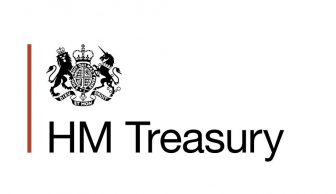 With savers receiving dismal returns from banks and building societies, many people have long turn to residential property as a means of supplementing their income, supported by record-low mortgage borrowing rates, high demand from tenants and increasing rents.
With savers receiving dismal returns from banks and building societies, many people have long turn to residential property as a means of supplementing their income, supported by record-low mortgage borrowing rates, high demand from tenants and increasing rents.
However, the attraction of buy-to-let has waned as far as some investors are concerned due to a series of tax changes in the private rented sector, and that has contributed to the loss of £1.5bn in Treasury revenue, according to new independent analysis commissioned by the National Residential Landlords Association (NRLA).
The analysis, conducted by Capital Economics, found that restrictions in mortgage interest relief have contributed to there being 1.2 million fewer properties in the private rented sector in the UK than there otherwise could have been.
The research comes as renters across the country continue to face a shortage of homes to rent, and it is this widening supply-demand imbalance that is placing upward pressure on rental values.
The supply crisis faced by renters follows the decision in 2015 by then-Chancellor George Osborne to restrict mortgage interest relief in the private rented sector to the basic rate of income tax.
Capital Economics also finds that between 2010 and 2016 the stock of private rented housing increased by a rate of 3.7% a year. However, between 2017 and 2021, the period in which the mortgage interest changes were implemented, it grew by just 0.4% a year.
The analysis reveals how, if private rented housing stock had continued to grow at a rate of 3.7%, there would have been a total of 6.8 million properties in the private rented sector in 2021 – around 1.2 million more properties than were actually available to rent.
According to Capital Economics’ research, the annual income and corporation tax revenue from these extra rented properties would have boosted Treasury revenue by £1.5bn.
The NRLA is calling on the Government to undertake a full review of the impact of recent tax rises on the sector. It argues that this must assess the impact of the Mortgage Interest Relief changes on the market. Ministers must also consider the rationale for the change, given the Institute for Fiscal Studies has previously argued it is wrong to suggest landlords have been taxed more favourably than homeowners.
Ben Beadle, chief executive of the NRLA, said: “At a time when renters are struggling to find a place to live, today’s research shows that the Government has shot itself in the foot.
“The decision to restrict mortgage interest relief has not only stifled investment in the very homes tenants need, it has also come at a considerable cost to the Treasury in lost revenue.
“When you consider that the government’s rationale for the changes has been refuted by the Institute for Fiscal Studies, it is clear that the chancellor needs to review this misguided tax hike.”


Although hope isn’t a strategy, lets ‘hope’ that government pay attention to this, especially as its hitting them in the pocket too!
You must be logged in to like or dislike this comments.
Click to login
Don't have an account? Click here to register